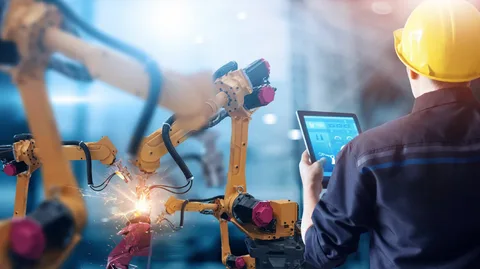The world is changing, and the manufacturing industry is under increasing pressure to adopt sustainable practices. No longer can companies solely focus on profit; they must also consider their environmental and social impact. This shift has profound implications for every aspect of the manufacturing process, and the bearing industry is no exception. In fact, leading bearing companies are at the forefront of driving sustainability, recognizing that their components play a critical role in the efficiency and longevity of countless machines and systems.
But how exactly are these companies innovating and contributing to a greener future? Let’s explore the multifaceted approach being taken by leading bearing companies to drive sustainability in manufacturing.
The Growing Importance of Sustainability in Manufacturing
Before diving into the specifics, it’s crucial to understand why sustainability is so vital in manufacturing today. Several factors are driving this change:
- Environmental Concerns: Resource depletion, pollution, and climate change are urgent global issues. Manufacturing processes often contribute significantly to these problems, leading to increased scrutiny and pressure for change.
- Regulatory Pressure: Governments worldwide are implementing stricter environmental regulations, forcing companies to adopt more sustainable practices. Failure to comply can result in hefty fines and reputational damage.
- Consumer Demand: Consumers are becoming increasingly aware of the environmental impact of the products they purchase. They are more likely to support companies with strong sustainability credentials and are willing to pay a premium for eco-friendly products.
- Economic Benefits: Surprisingly, sustainability can also be economically beneficial. By reducing waste, optimizing energy consumption, and improving resource efficiency, companies can lower operating costs and increase profitability.
Sustainable Bearing Manufacturing: A Multi-Pronged Approach
Leading bearing companies tackle sustainability through a variety of innovative strategies that impact every stage of the product lifecycle, from raw material sourcing to end-of-life management.
- Eco-Friendly Materials and Manufacturing Processes
- Recycled Materials: Companies are increasingly using recycled steel and other materials in bearing manufacturing. This reduces the demand for virgin resources and minimizes waste.
- Water-Based Lubricants and Cleaners: Traditional manufacturing processes often rely on harsh chemicals. Companies are switching to water-based alternatives to reduce pollution and improve worker safety.
- Energy Efficiency: Reducing energy consumption is a key priority. This involves upgrading machinery, optimizing production processes, and investing in renewable energy sources.
- Waste Reduction and Recycling: Minimizing waste generation and maximizing recycling efforts is essential. This includes implementing closed-loop systems to recycle materials and reducing packaging waste.
- Near-Net Shape Manufacturing: This method minimizes material waste by creating parts that are closer to the final shape. This requires less machining and reduces scrap.
- Extending Bearing Lifespan and Reducing Downtime
- Advanced Materials and Coatings: Using high-performance materials and coatings extends bearing life and reduces the frequency of replacements. This reduces resource consumption and lowers environmental impact.
- Improved Lubrication Systems: Proper lubrication is critical for bearing performance and longevity. Advanced lubrication systems optimize lubrication intervals and reduce friction, extending bearing life and reducing energy consumption.
- Condition Monitoring: Real-time condition monitoring systems detect potential problems early, preventing catastrophic failures and minimizing downtime. This ensures optimal performance and reduces the risk of premature replacement.
- Remanufacturing and Refurbishment: Instead of discarding worn bearings, companies are offering remanufacturing and refurbishment services. This extends the life of the bearing and reduces the need for new production.
- Optimizing Bearing Design for Efficiency
- Lightweight Designs: Reducing the weight of bearings can improve energy efficiency in applications such as automobiles and aircraft. Companies are using innovative materials and designs to achieve this.
- Low-Friction Designs: Optimizing bearing designs to minimize friction reduces energy loss and improves overall efficiency. This includes using advanced surface treatments and lubricants.
- Integration and Simplification: Integrating bearing functions and simplifying designs can reduce the number of components required, leading to lower material consumption and reduced manufacturing complexity.
- Using Simulation and Modeling: Advanced simulation and modeling tools allow companies to optimize bearing designs for performance and efficiency before physical prototypes are even built. This reduces waste and speeds up the design process.
- Supply Chain Sustainability
- Supplier Audits: Companies are auditing their suppliers to ensure they adhere to sustainable practices. This helps to ensure that the entire supply chain is environmentally responsible.
- Ethical Sourcing: Ensuring that raw materials are sourced ethically and sustainably is crucial. This includes avoiding conflict minerals and promoting fair labor practices.
- Local Sourcing: Sourcing materials and components locally reduces transportation distances and lowers the carbon footprint.
- Transparency and Traceability: Tracking the origin and environmental impact of materials throughout the supply chain is essential for accountability and continuous improvement.
- Digitalization and Data-Driven Sustainability
- Predictive Maintenance: Using data analytics to predict bearing failures allows for proactive maintenance, minimizing downtime and extending bearing life.
- Energy Monitoring and Optimization: Collecting and analyzing energy consumption data allows companies to identify opportunities for improvement and optimize energy usage.
- Smart Manufacturing: Implementing smart manufacturing technologies, such as the Internet of Things (IoT) and artificial intelligence (AI), can optimize production processes and improve resource efficiency.
- Digital Twins: Creating digital twins of bearings and machines allows for virtual testing and optimization, reducing the need for physical prototypes and minimizing waste.
Examples of Leading Bearing Companies and Their Sustainable Initiatives
Several bearing companies are leading the charge in sustainability. Here are a few examples:
- SKF: SKF has committed to achieving net-zero greenhouse gas emissions in its operations by 2030. They are investing in renewable energy, reducing waste, and developing more sustainable products.
- Schaeffler: Schaeffler focuses on developing energy-efficient bearings and systems for various industries. They are also committed to reducing their carbon footprint and promoting circular economy principles.
- NSK: NSK is actively working to reduce its environmental impact through energy conservation, waste reduction, and the development of eco-friendly products. They are also committed to ethical sourcing and responsible supply chain management.
- Timken: Timken focuses on extending the life of bearings through remanufacturing and providing advanced condition monitoring services. They are also committed to reducing their energy consumption and waste generation.
The Future of Sustainable Bearings
The drive for sustainability in the bearing company and manufacturing industry is only going to intensify in the years to come. We can expect to see even greater innovation in materials, designs, and manufacturing processes. Digitalization and data analytics will play an increasingly important role in optimizing bearing performance and minimizing environmental impact. Collaboration and knowledge sharing between bearing companies, manufacturers, and research institutions will be essential for accelerating progress towards a more sustainable future.
Ultimately, the adoption of sustainable practices within the bearing industry is not just an ethical imperative but also a strategic necessity. By embracing innovation and prioritizing environmental responsibility, bearing companies can help to create a more sustainable manufacturing sector and contribute to a healthier planet.
Conclusion
The commitment of leading bearing companies to sustainability is reshaping the manufacturing landscape. By embracing eco-friendly materials, optimizing designs, extending product lifecycles, and leveraging digital technologies, these companies are not only reducing their environmental impact but also driving efficiency and innovation. As businesses increasingly prioritize sustainable solutions, choosing the right bearing supplier becomes crucial. KG International encourages businesses to purchase high-quality bearings for heavy vehicles or equipment from KG International, a distributor of varied and top-notch bearings in the industry. By partnering with a reliable and sustainable supplier, companies can ensure optimal performance, longevity, and reduced environmental footprint, contributing to a greener and more sustainable future.










